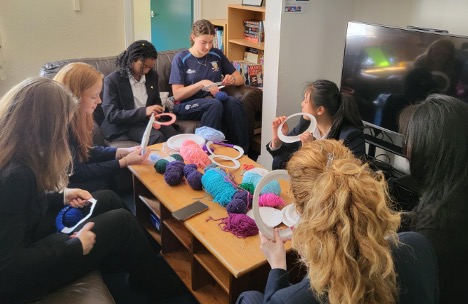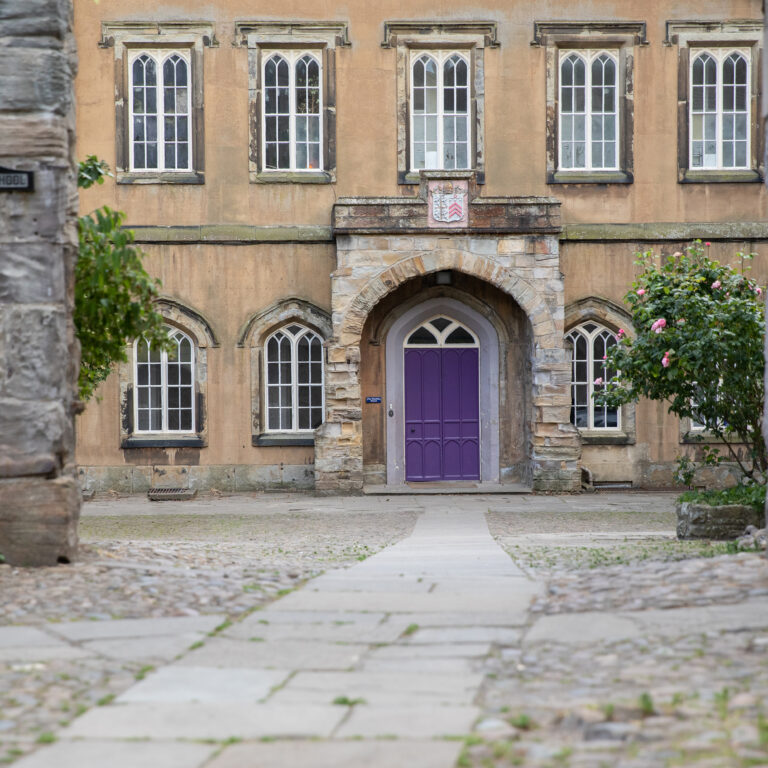
Author: Nicola Thompson, Director of Wellbeing at Durham Cathedral Schools Foundation.
At Durham Cathedral Schools Foundation, we recognise that wellbeing is far more than just a buzzword; it’s a vital and sustainable aspect of education, personal development, and community life. As a co-educational through-school, with students ranging from nursery age to sixth form, and with three international sister schools, our challenge has always been to develop a wellbeing strategy that is both flexible and consistent. To meet this challenge, we’ve taken a proactive and inclusive approach, ensuring that wellbeing is embedded into the very fabric of our school community.
One of the fundamental understandings we have at Durham is that for many children and even adults, the concept of “wellbeing” can feel abstract, sometimes even a little ‘woolly’. In response, we have developed a guiding framework that breaks the idea down into something more practical, accessible, and meaningful. We call this G.R.O.W.T.H. – an acronym that stands for Goals, Resilience, Others, Words, Time, and Health. These six pillars allow us to communicate and promote the various elements of wellbeing in a way that is age appropriate, culturally adaptable, and easy to understand.
Each aspect of G.R.O.W.T.H. addresses a critical area of development:
Goals – help our students to focus, feel purpose, and cultivate motivation.
Resilience – equips them to bounce back from challenges and face the future with confidence.
Others – reminds us of the importance of relationships, empathy, and community, including charity work.
Words – emphasises the power of communication, both verbal and emotional literacy.
Time – encourages students to balance priorities and manage their daily lives effectively, ensuring they make the most of time both in and outside of school.
Health – covers both physical and mental wellbeing, recognising the inextricable link between the two.
Our staff, teachers, tutors, and support teams use the G.R.O.W.T.H. model as a toolkit to deliver consistent messaging and tailored support across all stages of education. This approach ensures our youngest learners in the nursery begin to develop emotional awareness and self-care habits, while our sixth form students engage in more nuanced conversations about stress management, leadership, and future planning.
This adaptability also supports our global perspective. With international schools as part of our foundation, we’ve been able to take our wellbeing ethos abroad. Most recently, during Mental Health Awareness Week, Durham School UK collaborated with our sister school in Dubai for a joint celebration that bridged time zones and cultures. I had the pleasure of working alongside Mrs Jo Tuck, Deputy Head Pastoral at Durham Dubai, to design a shared programme of events. This included exchanging welcome videos from staff, sharing photographs of staff breaktime moments, and facilitating student-led activities such as wellbeing challenges, group team building and mindfulness moments. Despite the geographical distance, our common values ensured a seamless and enriching experience for both schools; something we’re excited to build upon in the years ahead.
At the core of our wellbeing curriculum is our Life & Wellbeing Education (LWE) programme, an evolved and comprehensive successor to the traditional PSHE model. Running throughout all key stages, this programme is designed not only to teach but to engage. From critical issues such as online safety and healthy relationships, to overlooked yet essential topics like eye care, water safety, and sleep, LWE ensures our students are equipped for life, not just exams. Each week, students also engage in a dedicated LWE tutor slot, which reinforces the topics discussed in class or explores subject matter that is best done through small, single-sex group.
Chapel, too, plays a crucial role in embedding wellbeing into daily life. Our morning reflections focus on our school values (MARK) moral integrity, ambition, responsibility, and kindness, which work hand in hand with our wellbeing objectives. These moments of calm reinforce the message that wellbeing is not a separate ‘subject’ but a way of being.
Leadership and peer involvement are another cornerstone of our approach. Our sixth form Wellbeing Ambassadors play an active role in our House system, organising and leading lunchtime activities that promote positive wellbeing from yoga to football, bookmark making to podcast recording. This range of creative workshops and sports challenges to mindfulness sessions and themed discussion groups, not only sets a strong example for younger pupils but also helps to foster a culture of shared responsibility and support.
What makes our wellbeing model sustainable is the way it is embedded, not added on. By incorporating G.R.O.W.T.H. into every layer of school life – curriculum, pastoral care, co-curricular activity, and community – we’ve created a foundation that supports our pupils now and prepares them for the challenges of the future. This integrated approach means that conversations about mental health, physical wellbeing, and emotional development happen naturally and frequently, making our school a safer, more supportive, and more nurturing environment for all.
In a world where pressures on young people are growing, Durham Cathedral Schools Foundation is proud to lead with empathy, clarity, and innovation. Our G.R.O.W.T.H. framework ensures that wellbeing is not just something we talk about, it’s something we live and grow with together.
